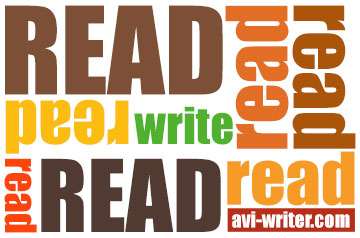 Whenever I talk to young people I am asked, ”What can I do to make my writing better?” The answer is simple: read.
Whenever I talk to young people I am asked, ”What can I do to make my writing better?” The answer is simple: read.
The more you read the better your writing will be. I hasten to say, the quality of what you read can make a difference, too. If you read a lot of good writing, that reading will internalize your writing. You will start to think like a writer. It is as they say about learning a new language: if you surround yourself with it, it starts to become your way of thinking.
In this context, accept this fundamental premise: writing is not talking. For the most part, the grammar, vocabulary, narrative flow of literature is, in many respects, a language with its own structure, cadence, and logic. There is nothing inherently natural about it. It must be learned.
That is why I so often say, “Writers don’t write writing. They write reading.”
If you are young, and a would-be writer, the simple truth is that it’s more important that you read than write. If you do not read, yet try to write, I don’t think you can succeed very well.
So many people say to me, “I want to become an author.”
You become an author after you learn to write. And to write, you must first learn the language we call writing.
In short, read, read, read. And only then write.
3 thoughts on “Writing is not talking”
Love the simplicity and truth in your words. I heard you say this in your presentation and noticed how this profound advice silenced the crowd for a moment. I appreciate having the same advice written in your blog so my students will be able to read, reflect, and write on it.
This is my aha moment for the day! An excellent reminder and a new approach to teaching my students writing. We need to focus on more reading!
Thanks again for this reminder, Avi. The commitment is to REAL reading — not reading for CCSS or reading to go up another level in Accelerated Reader, or reading to earn a pizza party — but reading for real, and lots of it.